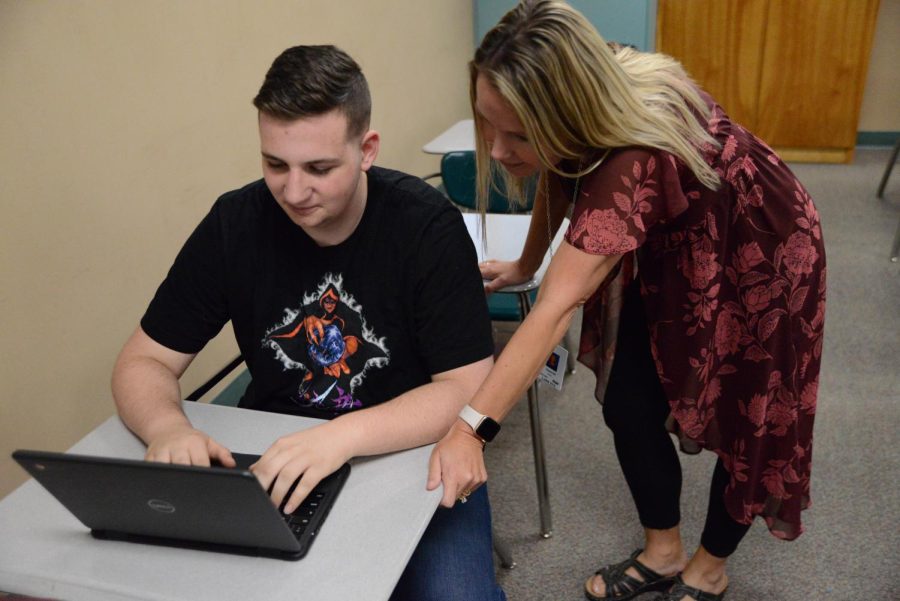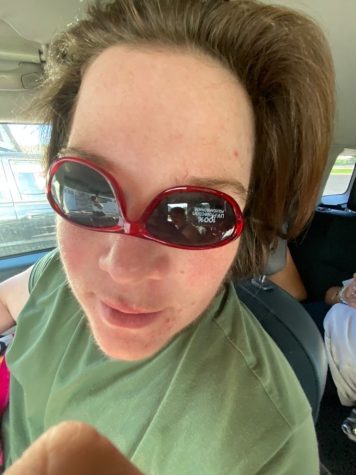A Foot in two Worlds
October 13, 2022
Taking college classes in high school is one of the most beneficial opportunities provided to students at Lakeland. A handful of Lakeland teachers also teach for colleges but stay in their high school classrooms for these dual-credit classes.
Teachers that spent many hours outside of school in order to become dual-credit teachers committed themselves and are the sole reason this opportunity exists for Lakeland students.
A handful of teachers teach through North Idaho College(NIC), and some also teach through Northwest Nazarene University(NNU).
The process of becoming a dual credit teacher takes a lot more time than just becoming a high school teacher. Dual credit teachers are required to go through an application and hiring/interview process. They are also required to have a master’s degree.
John Keating has been teaching since 1989. He spent his first seven years teaching in the Idaho Falls school district. In 1996, Keating came to Lakeland junior high and became the vice principal. After being vice principal for six years, Keating decided he wanted to return to the classroom. However, he served as the junior high’s principal for two years until 2006, when he came to teach at the high school.
Keating taught economics and world history for six years at LHS, and in 2012, he began teaching his dual-credit political science class through NIC. Keating has a handful of degrees, including a master’s degree in administration from Idaho State University in Pocatello. This, combined with a pair of degrees from the University of Idaho in political science and history, gave Keating all the right components to be hired as a dual-credit political science teacher.
“When I first started as a dual-credit teacher, it was difficult to determine how rigorous to make the coursework. It was a new thing in my career to think about knowledge at that level in a college classroom environment,” Keating said. “As I taught more, I gained a better ability to estimate the level of rigor in the content I sent out to my college students. There is a balance between not making it too hard for these teenagers and still giving college expectations.”
Colleen Bevacqua also teaches college classes at Lakeland. She teaches US history 111/112 through NIC and has two college classes daily. Bevacqua got her master’s degree through the University of Idaho and got vetted to teach dual credit.
She taught for nine years at Lakeland before becoming a dual credit teacher. However, in the last three of those nine years, in the middle of her teaching kids all day, Bevacqua was working towards her master’s degree.
Bevacqua feels that her college classes keep her on her toes. The main difference between her high school and college classes is the number of assessments.
“It’s a challenge switching paces between college and high school courses. A majority of the students that take dual-credit classes tend to put in more effort than some of my seniors, that seem ready to graduate already,” said Bevacqua.
Some college classes differ significantly from other high school courses.
Both Shannon Hall and Colleen Hall teach college classes throughout their day, among some high school courses.
“In an elective class like Movies as Lit, there is a variety of age groups and learning abilities. The structure of that class is vastly different. As a teacher, you have to make sure the assignments are well explained and broken down into smaller and easier activities,” said Shannon Hall. “In my college classes, the expectation is the students know what they’re doing as far as writing. There is more freedom than a specific direction.”
Ms. Shannon Hall teaches English 101; a writing course offered to juniors. The class includes all types of writing, from narrative to expository, to argumentative. She also teaches English 175. English 175 is a literature class that covers short stories, plays, and a variety of other literature pieces. In both of these classes, she teaches through NIC.
Shannon’s twin sister, Colleen Hall, said, “My two COMM classes are more independent and self-guided. The regular speech class is more teacher-led. If a kid is taking speech and they did well in regular speech, I recommend moving on to take COMM 101.”
Colleen Hall teaches speech and COMM 101, as well as an improv class at Lakeland. She teaches COMM 101 through NIC. She was hired in 1994 after attending 6+ years at the University of Idaho. Both Hall sisters have taught only at Lakeland and have been here since 1994. Colleen’s favorite part of being a speech teacher is hearing from former students how her class helped them with public speaking as adults. Hall believes that public speaking is a crucial skill.
Despite the difficulties associated with teaching dual credit classes, multiple college teachers at the high school believe that the opportunity is too good to pass up.
Sara Teel, who teaches two college statistics classes through NNU, says that, in some ways, the classes are not so different. She noted that both college and high school math students have a lot of questions.
Teel doesn’t believe that statistics is challenging to teach. “It is completely different from any math class these kids have taken. I teach a mainly activity-based statistics class which makes it fun. We do a lot of analyzing data in different ways. The real difference is how applicable statistics is to real-life situations.”
Shannon Mattila, a college precalculus and calculus teacher at Lakeland, has taught college pre-calc through NIC since 2011. However, in 2019, Mattila became the college calculus teacher as well as continuing her pre-calc classes. The issue was NIC wouldn’t allow Mattila to teach calculus year-round. So, as a result, in 2021, Mattila made the full-time switch from NIC to NNU for both her calculus and precalculus classes.
“It didn’t make sense to teach pre-calc for NIC and calculus for NNU, so I made the switch. The requirements are similar for both institutions. There is an interview, a hiring process, and a teaching process where they are observed. NIC has the least flexible requirements, in my experience,” said Mattila.
Like Teel, Mattila says that Lakeland students are lucky to have many dual credits offered here. You can graduate with 30 college credits without leaving campus relatively easily. We’ve built a strong dual credit program here.
It takes quite a process to become a college teacher, and it can be difficult to teach both classes throughout the day and switch between the two.


todd • Oct 13, 2022 at 4:26 pm
best story evaaa
Matthew Wirtz • Oct 13, 2022 at 3:32 pm
Good writing Editor in Chief Liam Bradford! Another classic story and one that helps many students! Keep up the great work